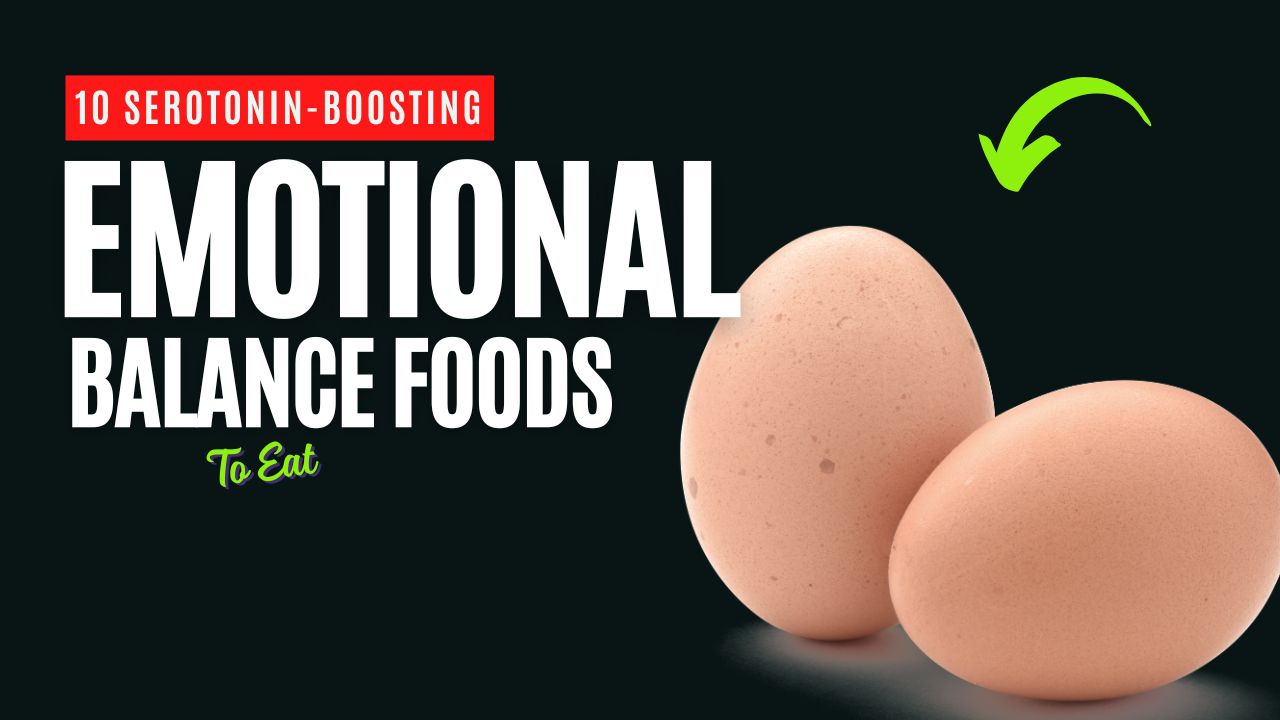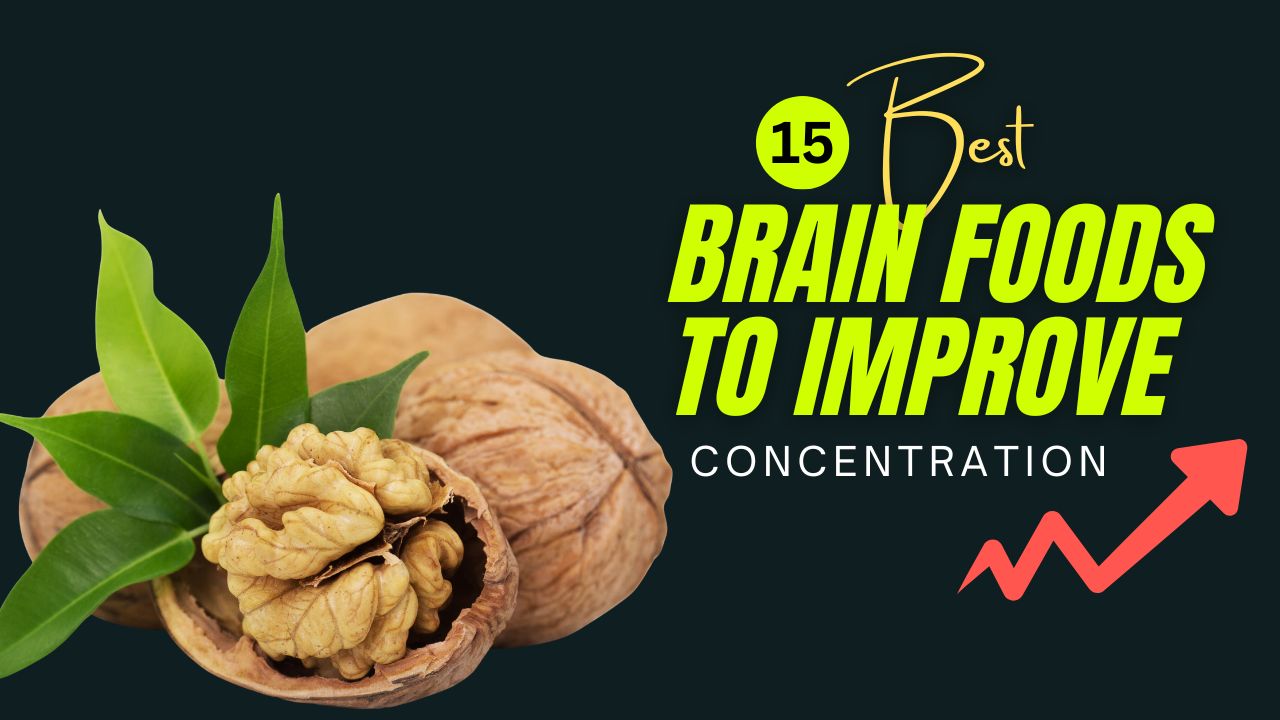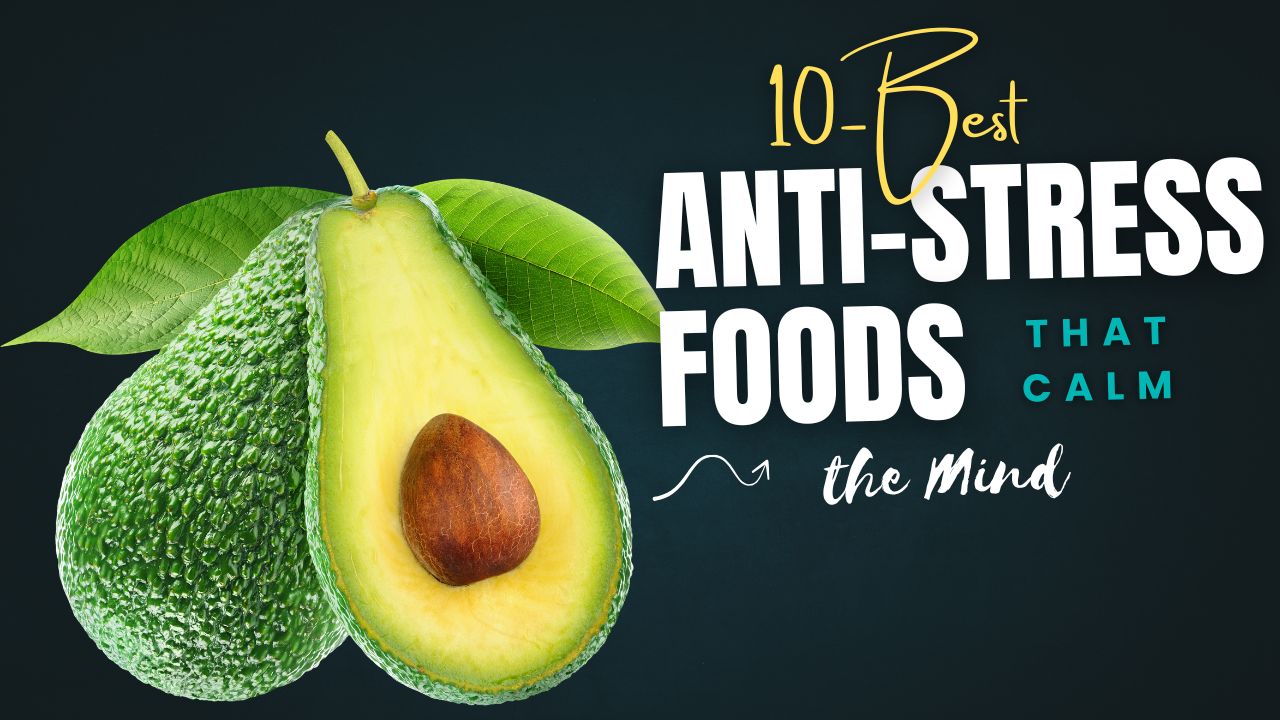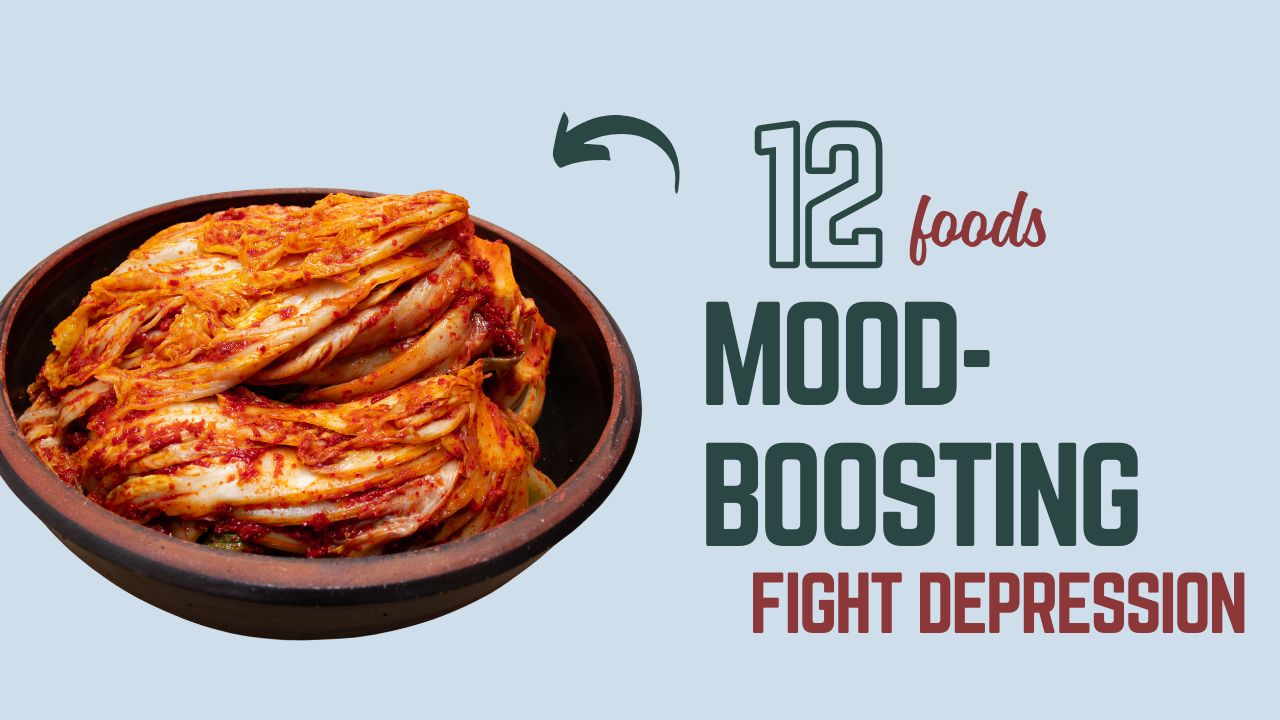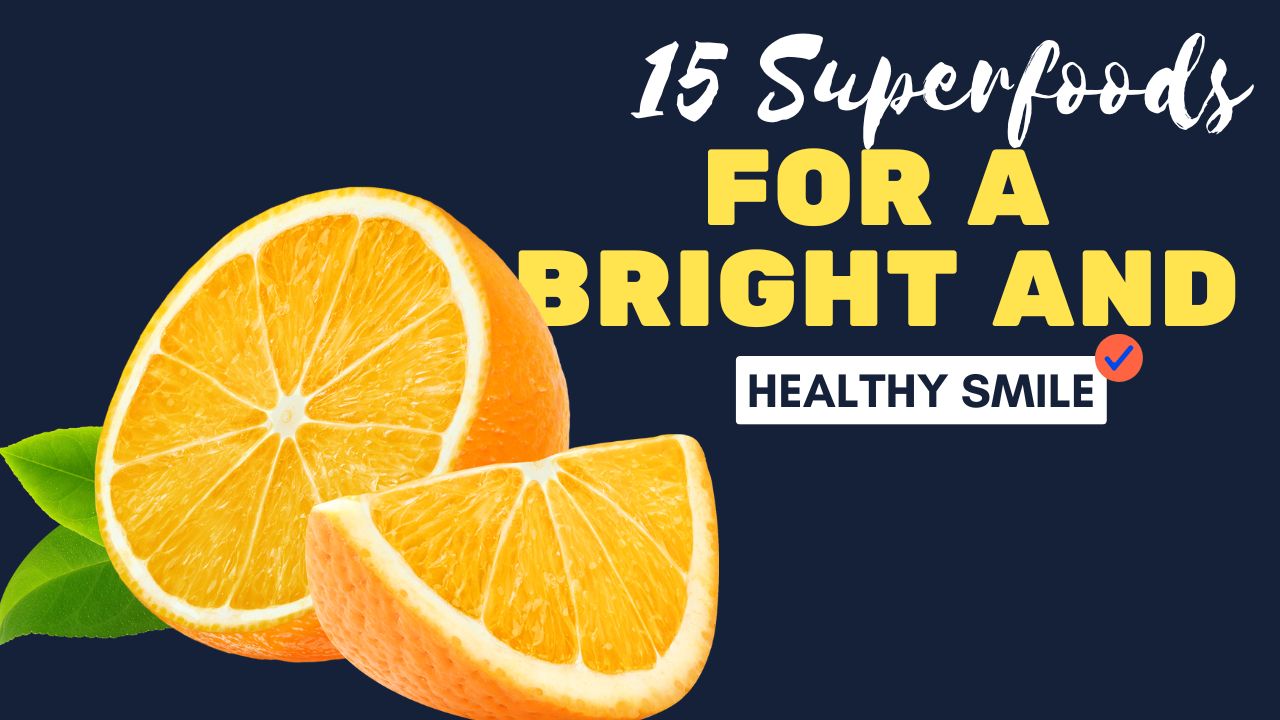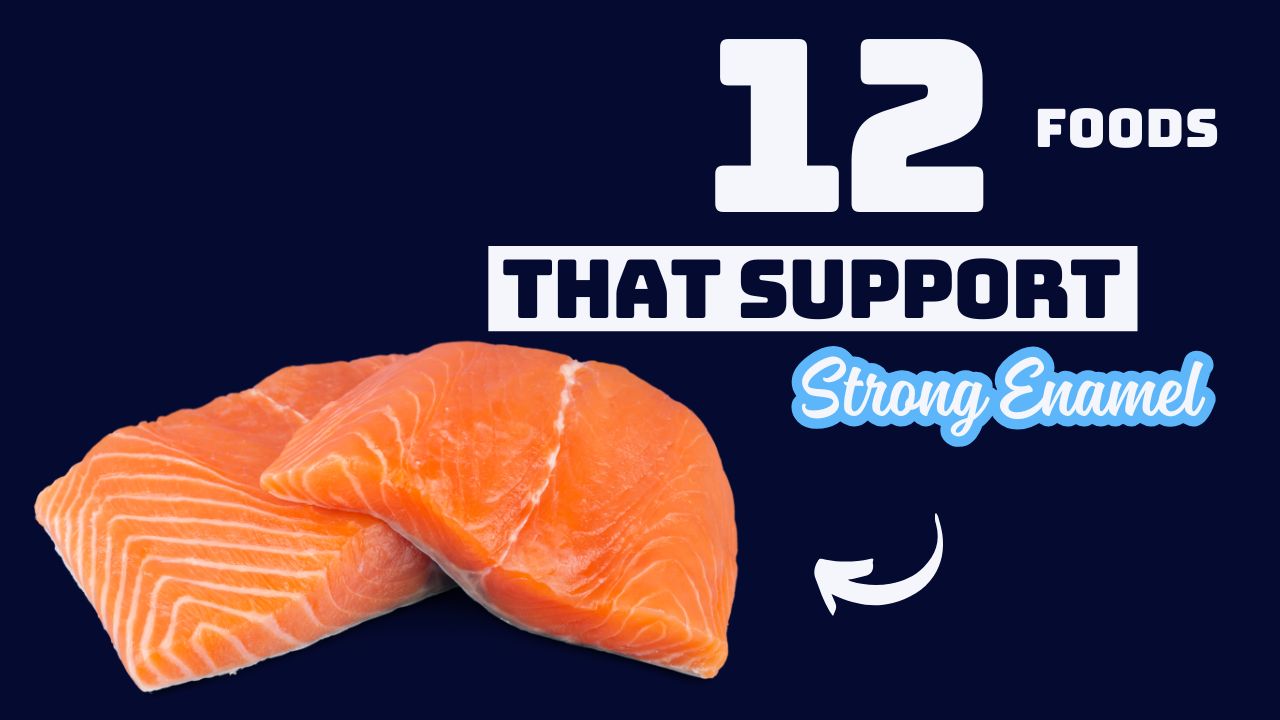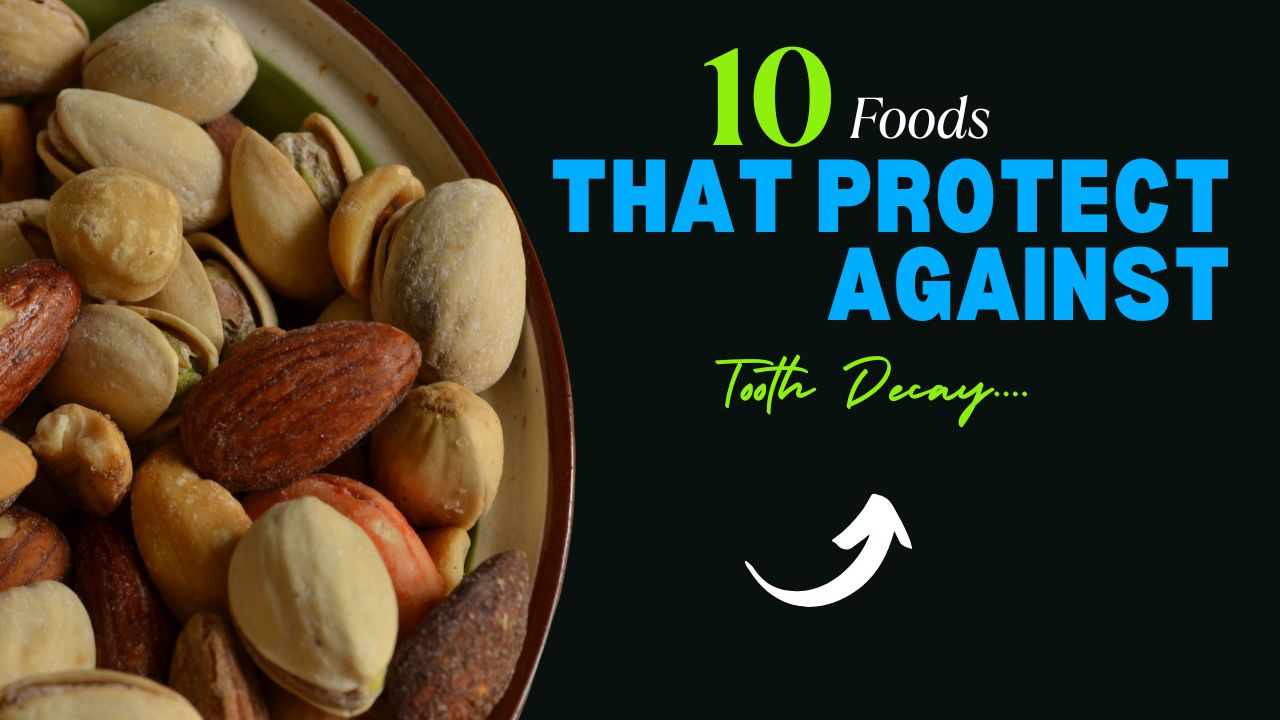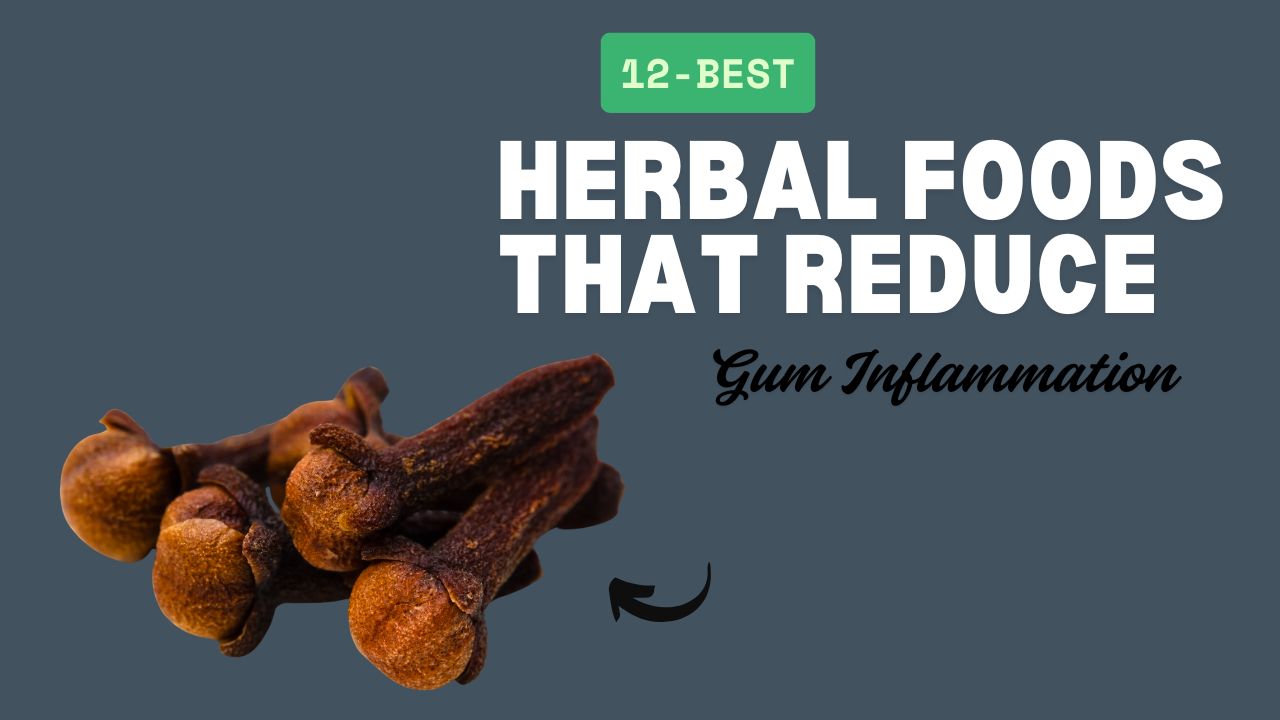Do you know that your brain uses nearly 20% of your body’s energy even when you’re at rest? That means what you eat directly fuels how well you can think, focus, and remember things.
While many people blame distractions or stress for poor concentration, the truth is that diet plays a huge role in brainpower.
Think about it: Have you ever felt mentally sluggish after a heavy junk-food meal? Or unusually sharp and alert after a breakfast full of fruits, nuts, and whole grains? That’s because your brain thrives on specific nutrients that keep neurons firing smoothly, protect memory, and improve focus.
In this post, we’ll dive deep into 15 powerful brain foods that science shows can enhance concentration, memory, and overall mental clarity. You’ll learn:
- Which foods are proven to sharpen focus and boost productivity.
- The best ways to eat or prepare them for maximum benefits.
- Who should include them in their diet and who should be cautious.
- Storage and buying tips to make sure you get the freshest nutrition.
- Do’s and don’ts for keeping these foods healthy and effective.
- Possible side effects you should be aware of.
Whether you’re a student trying to ace exams, a professional looking to stay sharp at work, or simply someone who wants a healthier mind, this guide is packed with practical insights.
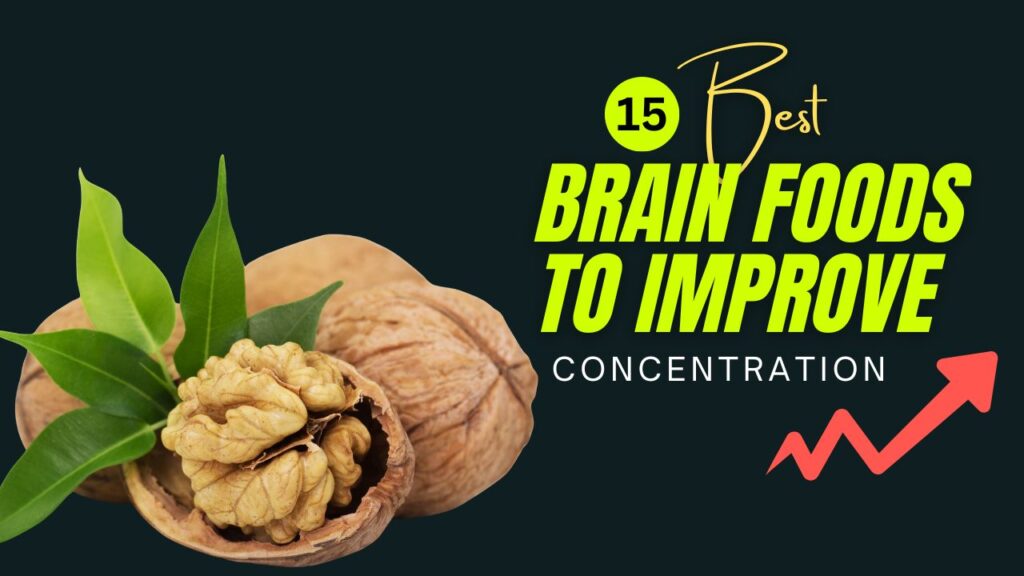
Table of Contents
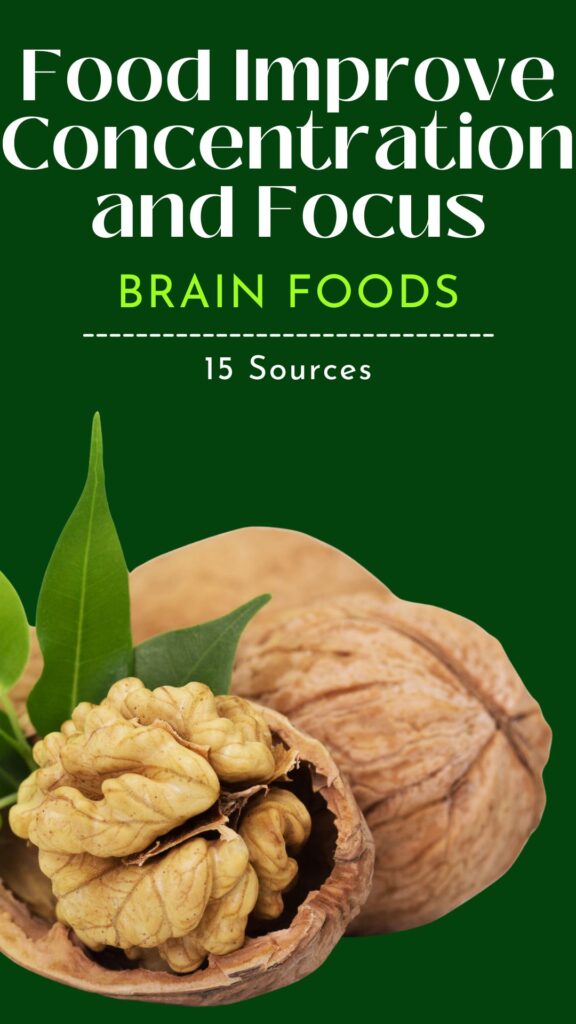
15 Best Brain Foods To Eat
1. Fatty Fish (Salmon, Mackerel, Sardines)
Rich in omega-3 fatty acids (DHA and EPA), fatty fish are like premium fuel for your brain. Omega-3s build cell membranes, improve communication between brain cells, and reduce inflammation that may impair focus.
Best Ways to Eat or Use It
- Grilled or baked with herbs.
- In sushi or poke bowls.
- As salmon salad or fish tacos.
Who Should Eat / Avoid
- Good for: students, professionals, older adults (prevents memory decline).
- Avoid/Limit if: pregnant women (choose low-mercury fish), people with fish allergies.
Storage & Buying Tips
- Choose fresh fish with clear eyes and mild smell.
- Freeze if not cooking within 2 days.
Do’s & Don’ts
✅ Do: eat at least 2 servings per week.
❌ Don’t: fry at very high temperatures (destroys omega-3s).
Possible Side Effects
Excessive intake can lead to high mercury exposure in certain fish.
2. Blueberries
Blueberries are tiny but powerful—loaded with antioxidants (anthocyanins) that protect the brain from oxidative stress and improve communication between neurons.
Best Ways to Eat or Use It
- Smoothies, yogurt bowls, oatmeal toppings.
- Fresh or frozen (nutrient content stays high).
Who Should Eat / Avoid
- Good for: students, elderly (helps memory).
- Avoid if: kidney stone sufferers (high oxalates).
Storage & Buying Tips
- Look for firm, deep-blue berries.
- Store in the fridge for up to a week.
Do’s & Don’ts
✅ Do: eat raw for max antioxidants.
❌ Don’t: add excessive sugar.
Possible Side Effects
Rare, but overconsumption may upset digestion.
3. Dark Chocolate
Dark chocolate (70%+ cocoa) contains flavonoids, caffeine, and magnesium—all brain-friendly compounds that boost focus, reduce stress, and enhance mood.
Best Ways to Eat or Use It
- A few squares as a snack.
- In smoothies or energy bites.
Who Should Eat / Avoid
- Good for: professionals under stress, students.
- Avoid if: sensitive to caffeine, prone to migraines.
Storage & Buying Tips
- Store in a cool, dry place.
- Choose chocolate with minimal added sugar.
Do’s & Don’ts
✅ Do: eat in moderation (20–30g daily).
❌ Don’t: consume milk chocolate (low cocoa, high sugar).
Possible Side Effects
Too much caffeine may cause jitters or insomnia.
4. Walnuts
Nicknamed “the brain nut” because they literally resemble a brain, walnuts are high in alpha-linolenic acid (ALA) and polyphenols that improve memory and learning.
Best Ways to Eat or Use It
- Add to salads, oatmeal, or granola.
- Blend into walnut butter.
Who Should Eat / Avoid
- Good for: vegetarians needing plant-based omega-3.
- Avoid if: nut allergies.
Storage & Buying Tips
- Buy unsalted raw walnuts.
- Store in the fridge to prevent rancidity.
Do’s & Don’ts
✅ Do: soak overnight for better digestion.
❌ Don’t: buy pre-packaged flavored ones (added sugar/salt).
Possible Side Effects
Excess intake may cause stomach discomfort.
5. Broccoli
Broccoli is a powerhouse of vitamin K, antioxidants, and sulforaphane that support brain health and fight oxidative damage.
Best Ways to Eat or Use It
- Lightly steamed with olive oil.
- In stir-fries, soups, or roasted.
Who Should Eat / Avoid
- Good for: kids, adults, weight-watchers.
- Avoid if: thyroid issues (limit raw cruciferous veggies).
Storage & Buying Tips
- Pick firm, bright green florets.
- Store unwashed in fridge for 3–4 days.
Do’s & Don’ts
✅ Do: steam lightly.
❌ Don’t: overboil (destroys nutrients).
Possible Side Effects
Excess may cause gas or bloating.
6. Pumpkin Seeds
Packed with magnesium, zinc, iron, and copper, pumpkin seeds support nerve signaling and reduce mental fatigue.
Best Ways to Eat or Use It
- As roasted snacks.
- In trail mix, smoothies, or sprinkled on salads.
Who Should Eat / Avoid
- Good for: athletes (reduce fatigue).
- Avoid if: nut/seed allergies.
Storage & Buying Tips
- Buy raw, unsalted seeds.
- Store in airtight containers.
Do’s & Don’ts
✅ Do: eat a handful daily.
❌ Don’t: eat heavily salted packaged ones.
Possible Side Effects
May cause stomach upset in excess.
7. Eggs
Eggs are rich in choline, a nutrient that produces acetylcholine, essential for memory and focus.
Best Ways to Eat or Use It
- Boiled, poached, or scrambled.
- In omelets with veggies.
Who Should Eat / Avoid
- Good for: students, athletes, older adults.
- Avoid/Limit if: high cholesterol or egg allergies.
Storage & Buying Tips
- Buy free-range or organic.
- Store in fridge up to 3 weeks.
Do’s & Don’ts
✅ Do: boil or poach.
❌ Don’t: fry in too much oil.
Possible Side Effects
Overeating may increase cholesterol in sensitive individuals.
8. Avocados
Avocados provide healthy monounsaturated fats that support blood flow to the brain.
Best Ways to Eat or Use It
- On toast, in salads, guacamole.
- Blended into smoothies.
Who Should Eat / Avoid
- Good for: heart patients, students.
- Avoid if: kidney issues (high potassium).
Storage & Buying Tips
- Choose firm but slightly soft avocados.
- Ripen at room temp; refrigerate when ripe.
Do’s & Don’ts
✅ Do: eat half an avocado daily.
❌ Don’t: store cut avocados without lemon/lime (browning).
Possible Side Effects
High in calories; moderation needed for weight-watchers.
9. Green Tea
Green tea contains L-theanine and caffeine, a combo that improves focus, calmness, and alertness.
Best Ways to Eat or Use It
- As hot tea, iced tea, or matcha.
Who Should Eat / Avoid
- Good for: professionals, students.
- Avoid if: pregnant women (limit caffeine).
Storage & Buying Tips
- Store leaves in airtight, dark containers.
Do’s & Don’ts
✅ Do: drink 2–3 cups daily.
❌ Don’t: add too much sugar.
Possible Side Effects
Excess can cause insomnia or stomach upset.
10. Turmeric
Turmeric’s active compound curcumin boosts memory and fights brain inflammation.
Best Ways to Eat or Use It
- In golden milk, curries, smoothies.
Who Should Eat / Avoid
- Good for: people with joint pain, memory concerns.
- Avoid if: gallstones or bleeding disorders.
Storage & Buying Tips
- Buy fresh root or high-quality powder.
Do’s & Don’ts
✅ Do: combine with black pepper for better absorption.
❌ Don’t: overconsume supplements.
Possible Side Effects
Excess turmeric may thin blood.
11. Oranges
A single orange provides a day’s worth of vitamin C, which prevents mental decline and boosts immunity.
Best Ways to Eat or Use It
- Fresh juice, fruit salad, smoothies.
Who Should Eat / Avoid
- Good for: kids, adults, seniors.
- Avoid if: acid reflux sufferers.
Storage & Buying Tips
- Pick firm, heavy oranges.
Do’s & Don’ts
✅ Do: eat whole fruits for fiber.
❌ Don’t: rely on packaged juice (added sugar).
Possible Side Effects
Too much citrus may cause enamel erosion.
12. Whole Grains
Whole grains like oats, quinoa, and brown rice provide steady glucose, the brain’s main energy source.
Best Ways to Eat or Use It
- Oatmeal breakfast, quinoa salads, brown rice bowls.
Who Should Eat / Avoid
- Good for: students, professionals needing long focus.
- Avoid if: gluten sensitivity (choose gluten-free options).
Storage & Buying Tips
- Store in airtight containers.
Do’s & Don’ts
✅ Do: choose unprocessed whole grains.
❌ Don’t: eat too many refined carbs.
Possible Side Effects
Excess fiber may cause bloating initially.
13. Spinach
Spinach is full of folate, vitamin K, and antioxidants, which protect against cognitive decline.
Best Ways to Eat or Use It
- In smoothies, salads, or sautéed with garlic.
Who Should Eat / Avoid
- Good for: pregnant women (folate).
- Avoid if: kidney stone risk (oxalates).
Storage & Buying Tips
- Buy crisp, dark leaves.
- Store in fridge up to 5 days.
Do’s & Don’ts
✅ Do: eat lightly cooked.
❌ Don’t: overcook (loses nutrients).
Possible Side Effects
Too much may hinder calcium absorption.
14. Coffee
Coffee provides caffeine that boosts alertness and concentration, plus antioxidants that protect brain cells.
Best Ways to Eat or Use It
- Black coffee or with plant-based milk.
Who Should Eat / Avoid
- Good for: professionals, students, early risers.
- Avoid if: insomnia, anxiety issues.
Storage & Buying Tips
- Store beans in airtight jars.
Do’s & Don’ts
✅ Do: limit to 2–3 cups daily.
❌ Don’t: add excess sugar or cream.
Possible Side Effects
Too much causes jitteriness or sleep problems.
15. Beets
Beets boost blood flow to the brain thanks to nitrates that widen blood vessels.
Best Ways to Eat or Use It
- Roasted, juiced, or in salads.
Who Should Eat / Avoid
- Good for: athletes, professionals.
- Avoid if: kidney stone history (oxalates).
Storage & Buying Tips
- Pick firm, smooth beets.
- Store in fridge, unwashed.
Do’s & Don’ts
✅ Do: juice before workouts.
❌ Don’t: overcook (loses nitrates).
Possible Side Effects
May cause harmless pink urine.
Conclusion
Your brain is your most powerful tool, and like any machine, it performs best when fueled with the right nutrients. From omega-3-rich fish to antioxidant-packed blueberries, the 15 brain foods above can sharpen memory, improve focus, and protect against cognitive decline.
Try adding at least one of these foods into your next meal—whether it’s walnuts in your oatmeal, avocado on toast, or a cup of green tea before work. Small daily choices can create long-term brain benefits.
Which of these brain foods is your favorite? Share your go-to recipe or snack idea in the comments and inspire others to eat smarter for a sharper mind.
Frequently Asked Questions (FAQs)
What are the best foods to improve brain concentration quickly?
Foods like fatty fish, blueberries, dark chocolate, walnuts, and green tea are excellent for boosting focus and concentration almost immediately due to their high levels of omega-3s, antioxidants, and caffeine.
How often should I eat brain-boosting foods?
For best results, include at least one or two brain foods in your daily diet. Consistency matters more than quantity—small amounts daily can improve brain health over time.
Are there specific foods students should eat before exams?
Yes. Students benefit from eating eggs (for choline), blueberries (for memory), and green tea or coffee (for alertness) before exams. Avoid heavy, oily, or sugary meals that may cause sluggishness.
Can brain foods help prevent memory loss?
Yes. Foods rich in omega-3 fatty acids, vitamin K, antioxidants, and flavonoids—such as salmon, spinach, and blueberries—are linked to slower cognitive decline and may help protect against conditions like dementia.
Do brain foods work instantly?
Some, like coffee, green tea, or dark chocolate, provide an immediate mental boost due to caffeine. Others, like fatty fish, walnuts, and leafy greens, work long-term by nourishing and protecting brain cells.
Are there foods that harm brain health?
Yes. Processed foods high in sugar, refined carbs, and trans fats can impair memory, reduce focus, and increase brain fog. Limiting these is just as important as eating brain-healthy foods.
Can children benefit from brain foods?
Absolutely. Foods like eggs, oranges, whole grains, and nuts are excellent for children as they support learning, memory, and concentration. Just ensure portion sizes are age-appropriate.
Is coffee really good for concentration?
Yes, when consumed in moderation. Coffee’s caffeine boosts focus, energy, and alertness. However, too much can lead to jitteriness, anxiety, or sleep problems.
Do supplements work as well as whole brain foods?
While supplements like fish oil or vitamin D can help fill nutritional gaps, whole foods provide a combination of nutrients, fiber, and antioxidants that supplements alone cannot replace.
